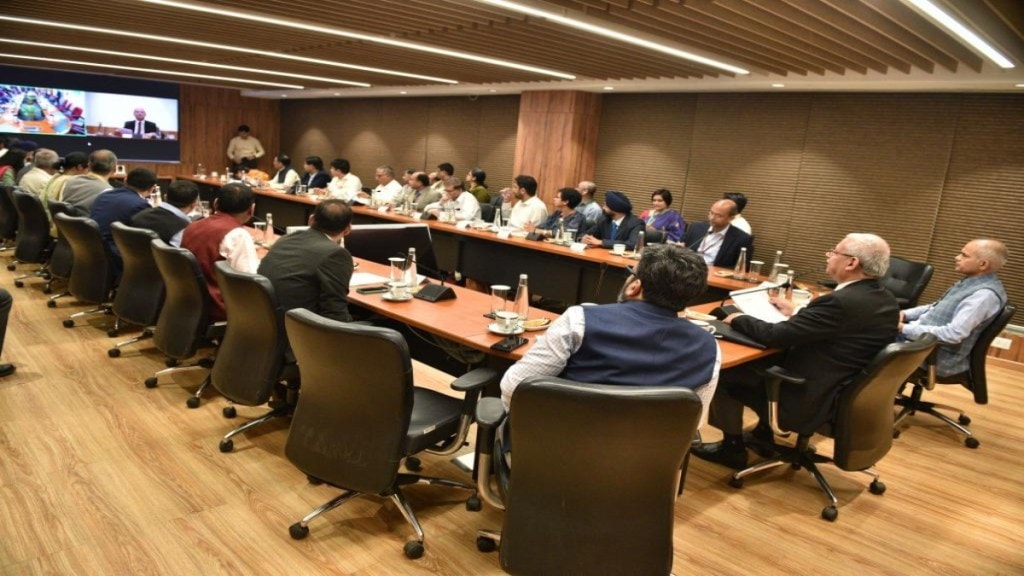India and CARICOM held their second Joint Commission meeting, an important event that reviewed and charted the future of their multifaceted relationship. Held virtually on November 6, 2024, this meeting marked a crucial milestone ahead of Prime Minister Narendra Modi’s upcoming visit to Guyana. The discussions spanned key areas such as economic cooperation, renewable energy, education, and infrastructure development, underscoring India’s strategic commitment to strengthening ties with the Caribbean.
Reviewing Bilateral Progress
During the meeting, discussions covered a broad range of topics, including economic and commercial relations, agriculture, health, and pharmaceuticals. Both sides expressed satisfaction with the progress made so far and explored further ways to enhance economic cooperation and trade. According to the Ministry of external Affairs (MEA) attention was given to critical areas like renewable energy, where both India and CARICOM nations see vast potential for collaboration. The review also emphasized the importance of education, human resource development, and digital public infrastructure.
The Indian delegation, led by Jaideep Mazumdar, Secretary (East) in the Ministry of External Affairs, was joined by Ms. Barbara Dailey, Permanent Secretary, Ministry of Foreign Affairs, International Business, Trade, and Energy for the Government of Dominica and Chair of the COFCOR. Representatives from the CARICOM Secretariat, member states, and various ministries of the Indian government participated, illustrating the commitment from both sides.
Focus on Strategic Areas of Cooperation
Key areas of focus during the meeting included energy and infrastructure development. Renewable energy was highlighted as a mutual priority, with India reiterating its commitment to sharing technical expertise and supporting CARICOM in its climate resilience efforts. The session also covered technology and innovation, disaster management, and resilient infrastructure—sectors that align with CARICOM’s needs and India’s capabilities, stated the MEA.
Both sides expressed their intention to enhance educational partnerships and programs that support human resource capacity building, recognizing that such collaborations can provide long-term benefits for economic and social development.
A Surge in High-Level Engagements
The Joint Commission meeting followed a series of increased high-level interactions between India and CARICOM. This included the India-CARICOM Foreign Ministerial Meeting in New York on September 27, 2024, where both sides discussed advancing cooperation and shared insights on global challenges. The uptick in these engagements signals a deeper commitment to fostering diplomatic and economic ties.
The recent visit by Minister of State for External Affairs, Pabitra Margherita, to several Caribbean nations from September 30 to October 8, 2024, further showcased India’s proactive approach. Margherita’s tour included stops in Grenada, Barbados, and Antigua and Barbuda—all CARICOM member states—and featured high-level meetings with political and industry leaders, reinforcing India’s dedication to fostering robust bilateral relations.
Why CARICOM Matters for India
CARICOM, a 15-member regional organization, holds significant value for India. The grouping represents a cohesive voice in the Caribbean, with member states engaging in collective action on economic and social issues. Strengthening ties with CARICOM aligns with India’s broader strategy of deepening relationships with partners in the Global South, especially those sharing common developmental goals and democratic values.
The Caribbean region, with its strategic location and economic potential, presents opportunities for trade, collaboration in technology, and cultural exchange. By prioritizing engagements with CARICOM, India not only reinforces its commitment to shared growth but also supports global stability and development through cooperative ventures.
As India and CARICOM continue to build on their growing partnership, the emphasis on high-level dialogues, shared expertise, and mutual respect will serve as a foundation for meaningful progress and collaboration.

